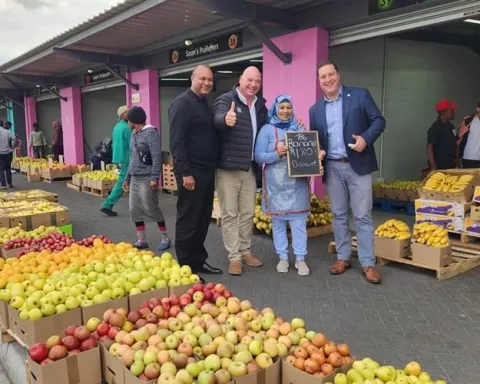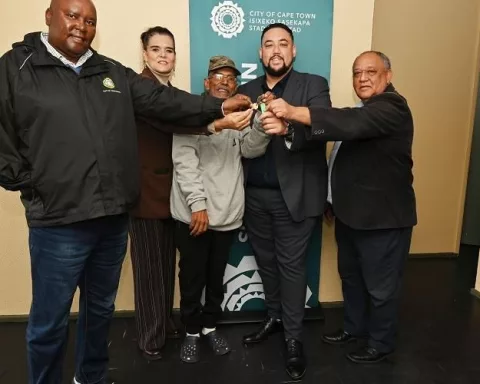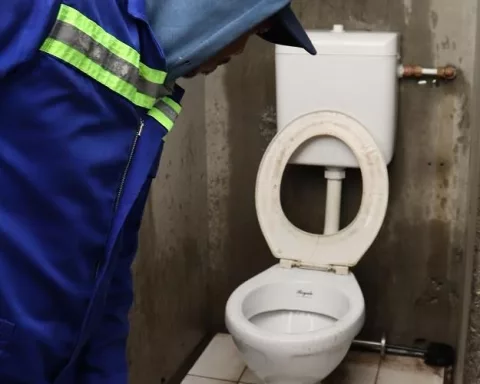A recent case in South Africa highlights the dangers of identity fraud in healthcare. “Dr. Matthew Lani” infiltrated the healthcare system by presenting himself as a medical professional, but further investigations revealed that his real name was Dr. Sanele Zingelwa, a second-year medical intern. The case emphasizes the need for improved security measures and identification protocols to prevent potential threats from jeopardizing patient health and safety. The presence of unqualified individuals posing as medical professionals can have severe consequences, especially in the midst of a global pandemic.
What are the consequences of identity fraud in healthcare?
Identity fraud in healthcare can have severe consequences for patients and the integrity of the profession. The recent case of “Dr. Matthew Lani” highlights the importance of proper identity verification and the potential hazards of fraudulent individuals infiltrating sensitive environments such as hospitals. This situation emphasizes the need for vigilance in the healthcare sector and the significance of adhering to regulations and legal frameworks. Improved security measures and identification protocols are necessary to prevent potential threats from jeopardizing patient health and safety.
The Shocking Discovery
In a surprising development, the Gauteng Department of Health (GDoH) recently filed a criminal case against an individual who had been pretending to be a medical doctor. This fraudster, known as “Dr. Matthew Lani,” successfully infiltrated the healthcare system by falsely presenting himself as an employee of the department and assuming multiple fake medical roles.
Unknown to many, Lani had been wandering the halls of Helen Joseph Hospital, creating content for social media, and passing himself off as a legitimate medical professional. However, further investigations led to a startling revelation: the name Lani claimed to be his real name – Dr. Sanele Zingelwa – in fact belonged to a second-year medical intern at Tembisa Provincial Tertiary Hospital. This discovery prompted the actual Dr. Sanele Sobani Vambani Zingelwa to file a separate case of identity fraud at the Tembisa Police Station.
Unraveling the Web of Deceit
The web of lies began to fall apart on June 16, 2022, when GDoH launched a campaign across its facilities as part of Youth Month commemorations. Young medical professionals born after 1994, known as “born-frees,” were invited to submit video clips discussing the importance of their birthright. Lani was among the participants, and at the time, no suspicions were raised regarding his identity or employment status.
In October 2022, Lani posted a video on TikTok expressing his dissatisfaction about non-payment as a medical intern at Helen Joseph Hospital. Once this grievance reached the GDoH, they referred the issue to the hospital’s management. Lani was then contacted by the CEO and asked to present himself at the facility’s human resource unit to address his concerns.
Feeling the pressure, Lani confirmed that his problem was being resolved and removed the incriminating TikTok video, claiming it was drawing unwarranted attention. However, the trail of deceit did not end there.
Under the alias “Dr. Sanele Zingelwa,” Lani concocted a story about a large number of people being admitted to Helen Joseph Hospital after taking a specific weight-loss pill. This led to The South African Health Products Regulatory Authority (SAHPRA) initiating an investigation in August 2023, only to discover that no such incident had transpired.
The Urgency for Improved Security Measures
This entire episode highlights the critical need to enhance access control and employee identification processes across healthcare facilities. The criminal case against Lani is in line with the Health Professions Act, Act No. 56 of 1974, as amended. The law states that practicing without registration with the Health Professions Council of South Africa is a criminal offense. Moreover, anyone using a name, title, description, or symbol implying or leading others to believe they hold a qualification they do not possess is guilty of an offense. Upon conviction, the guilty party may face a fine, imprisonment, or both.
Incidents like these underscore the importance of proper identity verification and the potential hazards of fraudulent individuals infiltrating sensitive environments such as hospitals. The GDoH’s response to this situation emphasizes the need for vigilance in the healthcare sector and the significance of adhering to regulations and legal frameworks.
In light of the ongoing global pandemic and the immense strain on healthcare systems worldwide, the presence of unqualified individuals posing as medical professionals can have severe consequences. This case offers an opportunity for hospitals and healthcare organizations to reexamine their security and identification protocols to prevent potential threats from jeopardizing the health and safety of patients and the integrity of the profession.
As the story of the fake doctor and identity fraud continues to develop, it serves as a vital lesson for us all: the necessity for constant vigilance and scrutiny in the healthcare sector has never been more crucial.
What is the recent case in South Africa regarding identity fraud in healthcare?
The recent case in South Africa involves an individual who presented himself as a medical professional under the name “Dr. Matthew Lani” but was later revealed to be Dr. Sanele Zingelwa, a second-year medical intern. The case highlights the need for improved security measures and identification protocols to prevent potential threats from jeopardizing patient health and safety.
Why is identity fraud in healthcare dangerous?
Identity fraud in healthcare can have severe consequences for patients and the integrity of the profession. Fraudulent individuals infiltrating sensitive environments such as hospitals can potentially harm patients, and it can jeopardize the reputation of the healthcare system as a whole. Improved security measures and identification protocols are necessary to prevent potential threats.
What happened when the Gauteng Department of Health launched a campaign across its facilities?
During a campaign across Gauteng Department of Health facilities, young medical professionals were invited to submit video clips discussing their birthright. “Dr. Matthew Lani” was among the participants, and at the time, no suspicions were raised regarding his identity or employment status. This led to further investigations that ultimately revealed his fraudulent activities.
What did “Dr. Matthew Lani” do after his TikTok video expressing dissatisfaction about non-payment as a medical intern at Helen Joseph Hospital?
After his TikTok video expressing dissatisfaction about non-payment as a medical intern at Helen Joseph Hospital, “Dr. Matthew Lani” was contacted by the CEO and asked to present himself at the facility’s human resource unit to address his concerns. Feeling the pressure, Lani confirmed that his problem was being resolved and removed the incriminating TikTok video, claiming it was drawing unwarranted attention.
What was the story Lani created under the alias “Dr. Sanele Zingelwa”?
Under the alias “Dr. Sanele Zingelwa,” Lani concocted a story about a large number of people being admitted to Helen Joseph Hospital after taking a specific weight-loss pill. This led to The South African Health Products Regulatory Authority (SAHPRA) initiating an investigation in August 2023, only to discover that no such incident had transpired.
What are the legal consequences of practicing without registration with the Health Professions Council of South Africa?
Practicing without registration with the Health Professions Council of South Africa is a criminal offense under the Health Professions Act, Act No. 56 of 1974, as amended. Additionally, anyone using a name, title, description, or symbol implying or leading others to believe they hold a qualification they do not possess is guilty of an offense. Upon conviction, the guilty party may face a fine, imprisonment, or both.
What is the significance of the recent case in the midst of a global pandemic?
In light of the ongoing global pandemic and the immense strain on healthcare systems worldwide, the presence of unqualified individuals posing as medical professionals can have severe consequences. The case serves as a vital lesson for hospitals and healthcare organizations to reexamine their security and identification protocols to prevent potential threats from jeopardizing the health and safety of patients and the integrity of the profession.
What should hospitals and healthcare organizations do to prevent identity fraud in healthcare?
Hospitals and healthcare organizations should implement improved security measures and identification protocols to prevent potential threats from infiltrating sensitive environments such as hospitals. Proper identity verification is crucial, and adherence to regulations and legal frameworks is necessary to ensure patient safety and the integrity of the profession.








